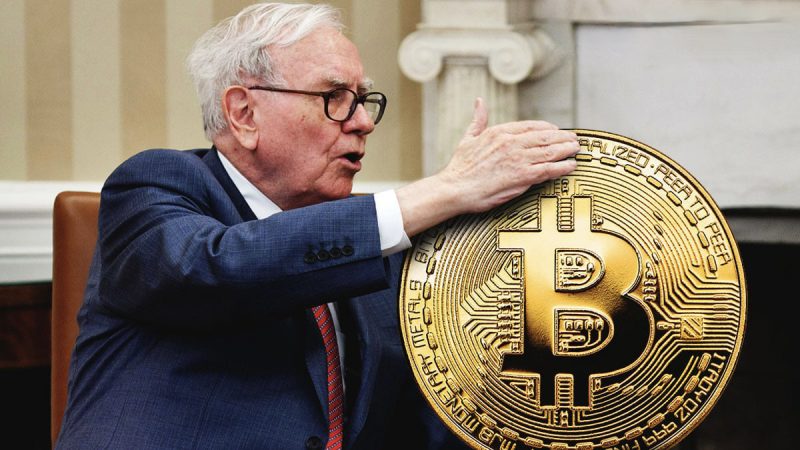Warren Buffet is probably one of the most revered investors in the world, however, the billionaire owner of Berkshire Hathaway has a particular distaste for the cryptocurrency industry. Nonetheless, that does not mean that the fifth richest man in the world is not indirectly exposed to digital assets.
However, before we get into how Warren Buffet is indirectly exposed to the cryptocurrency sector, let’s take a look at why the billionaire investor has a dislike for the asset class.
Why does Warren Buffet dislike cryptocurrencies?
“Price is what you pay, value is what you get,” the ‘Oracle of Omaha’ once said. The risk, though, “comes from not knowing what you’re doing,” he added. Both of those statements apply to Buffett’s views on Bitcoin. Notably, he rejects the notion of peer-to-peer, finite, and censorship-resistant Bitcoin as “sound money.” Buffett has always compared Bitcoin to something wholly irrational. Even Buffet’s partner, Charlie Munger, has suggested that cryptocurrencies be outlawed.
While speaking to CNBC in February 2020, Warren Buffet said, “cryptocurrencies basically have no value, and they don’t produce anything.” He further added that they have zero value.
Nonetheless, it was inevitable that Buffet would be indirectly exposed to digital assets.
How is Buffet indirectly exposed to crypto?
A majority of Buffet’s portfolio consists of Apple (41.76%) and other venerable investments like Coca-Cola (7.57%), Chevron (8.02%), and Bank of America (10.30%).
However, Buffet also owns shares in Visa for $1.47 billion, Mastercard (MA) shares worth $1.1 billion, and Nu Holdings (NH) shares worth $471.3 million (NU). All three firms have a significant stake in the digital asset sector.
The digital neo-bank Nu Holdings, located in Brazil, will introduce its cryptocurrency, Nucoin, in the first half of this year. The bank will also provide trading for Bitcoin (BTC) and Ethereum (ETH). Nu will also employ the Polygon network for Ethereum to reward loyal customers. Additionally, Nu Holdings disclosed in May of last year that 1% of neobank’s shares would be converted to Bitcoin.
In a similar vein, Visa and Mastercard payment processors have teamed with cryptocurrency businesses to provide debit cards with cryptocurrency links.





